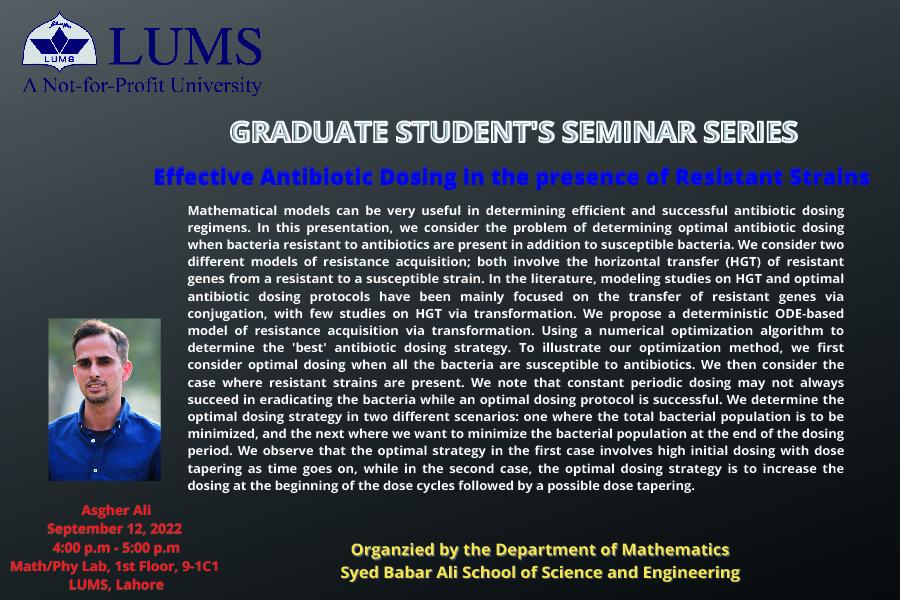
Effective Antibiotic Dosing in the presence of Resistant Strains
Mathematical models can be very useful in determining efficient and successful antibiotic dosing regimens. In this presentation, we consider the problem of determining optimal antibiotic dosing when bacteria resistant to antibiotics are present in addition to susceptible bacteria. We consider two different models of resistance acquisition; both involve the horizontal transfer (HGT) of resistant genes from a resistant to a susceptible strain. In the literature, modeling studies on HGT and optimal antibiotic dosing protocols have been mainly focused on the transfer of resistant genes via conjugation, with few studies on HGT via transformation. We propose a deterministic ODE-based model of resistance acquisition via transformation. Using a numerical optimization algorithm to determine the 'best' antibiotic dosing strategy. To illustrate our optimization method, we first consider optimal dosing when all the bacteria are susceptible to antibiotics. We then consider the case where resistant strains are present. We note that constant periodic dosing may not always succeed in eradicating the bacteria while an optimal dosing protocol is successful. We determine the optimal dosing strategy in two different scenarios: one where the total bacterial population is to be minimized, and the next where we want to minimize the bacterial population at the end of the dosing period. We observe that the optimal strategy in the first case involves high initial dosing with dose tapering as time goes on, while in the second case, the optimal dosing strategy is to increase the dosing at the beginning of the dose cycles followed by a possible dose tapering.

